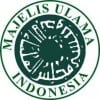Ina Parlina, The Jakarta Post
 Amid the rising dispute between the Religious Affairs Ministry and the Indonesian Ulema Council (MUI) over the authority on halal certification, Health Minister Nafsiah Mboi said on Friday at the House of Representatives that deliberation on the bill should be temporarily halted.
Amid the rising dispute between the Religious Affairs Ministry and the Indonesian Ulema Council (MUI) over the authority on halal certification, Health Minister Nafsiah Mboi said on Friday at the House of Representatives that deliberation on the bill should be temporarily halted.
The minister’s argument was based on the fact that only one of nine factions at the House supported the council’s claim while the rest said that the authority should be handed over to another agency. Religious Affairs Minister Suryadharma Ali insisted that his ministry had the most legitimate power to carry out the certification.
The government and the House are currently discussing the bill, which has been delayed since 2006, because the council demanded to keep the lucrative permit issuance authority. However, only the Prosperous Justice Party (PKS) backs the council.
Council deputy chairman Amidhan is facing bribery allegations, as reported by Tempo magazine. Amidhan, however, has strongly denied the report while the magazine firmly stands by its story.
“We have asked them to postpone deliberations since there has been no progress in deciding who will have the authority to issue the certificates,” Nafsiah said on Friday on the sidelines of an event at the State Palace.
As health minister, she said her main concern in the contentious bill was the drug and vaccine issue. Nafsiah added that it was hard to declare whether drugs and vaccines were halal.
In the current draft bill, halal certificates and labels would be required for three sectors; food and beverages, cosmetics and pharmaceuticals. It would also cover ingredients and the equipment used to make the products.
“Just delay it, particularly the provisions on drugs and vaccines since those have to do with saving lives.”
Debates between the Religious Affairs Ministry and the MUI have caused long delays in the bill’s deliberation. The ministry has demanded that the authority to issue halal certificates be given to the government rather than the MUI since the MUI is merely a mass organization, while the MUI, which currently holds sole authority, insists that it is the only institution capable of performing the role.
Suryadharma, who is also chairman of the United Development Party (PPP), has proposed that the MUI continue to be involved in providing recommendations, but only from a religious perspective.
While refusing to explain her position, Nafsiah said, “In other countries, it is common for certification to come from the government, those are the ones that are recognized and accepted” she said.
Under the current arrangement, the MUI gets to keep all proceeds derived from the issuance of the certificates. Currently, the MUI charges up to Rp 5 million (US$430) for a halal certificate.
Many people have complained that the MUI has not been transparent about its earnings, indicating extortion practices.
Hariyadi Sukamdani of the Indonesian Chamber of Commerce and Industry (Kadin) said his office and businesspeople were more concerned about whether halal certification would be a mandatory or voluntary than who would get the role to authorize it.
“We don’t want to talk about the political aspects of the bill. If halal certification becomes mandatory, it will harm small-scale industries,” he said.



